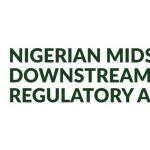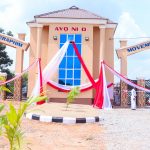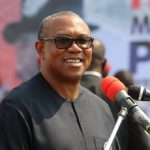Economy
QNB Group Records $1.8b Net Profit in 6 Months
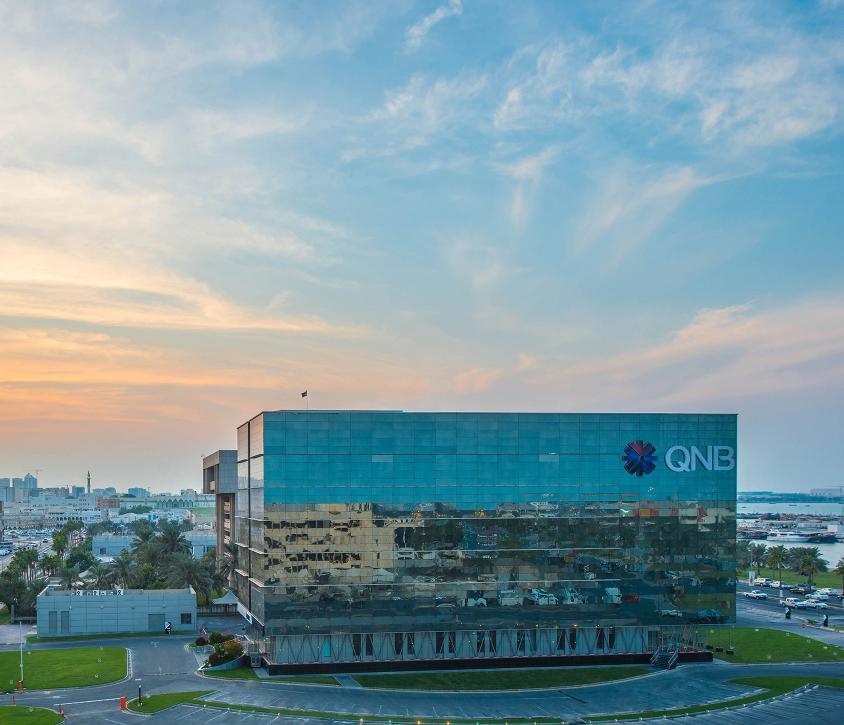
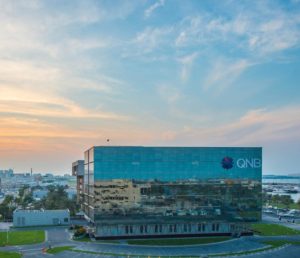
By Modupe Gbadeyanka
QNB Group, the largest financial institution in the Middle East and Africa (MEA) region, announced its results for the six months ended 30 June 2017, which is the highest in the history of QNB Group.
For the first six months of 2017, Net Profit reached $1.8 billion, up by 7 percent compared to last year, demonstrating QNB Group’s success in resilience and maintaining strong growth while controlling costs.
Total assets reached $211 billion, up by 11 percent from June 2016, the highest ever achieved by the Group. This was driven by a growth rate of 11 percent in loans and advances to reach $152 billion.
QNB Group was successful in attracting new customer deposits. These deposit mobilisation efforts resulted in increased customer funding by 15 percent to reach $154 billion from June 2016. This led to the Group’s loan to deposit ratio reaching 98.3 percent, compared with 101.7 percent in June 2016. This clearly demonstrates the success of QNB’s strategy to diversify its funding sources.
The Group’s prudent cost control policy and strong revenue generating capability helped to improve the efficiency ratio (cost to income ratio) to 29.3 percent as at 30 June 2017, from 30.4 percent in June 2016, which is considered one of the best ratios among financial institutions in the region.
The Group was able to maintain the ratio of non-performing loans to gross loans at 1.8 percent, a level considered one of the lowest amongst financial institutional in the MEA region, reflecting the high quality of the Group’s loan book and the effective management of credit risk. The Group’s conservative policy in regard to provisioning continued with the coverage ratio reaching 110 percent in 30 June 2017.
QNB Group benefits from a highly diversified international and local funding base spread across MEA, Europe and Asia. QNB has successfully diversified its wholesale funding pools in terms of currencies, tenors and product mix and follows a very conservative approach to manage its liquidity needs.
Based on this, the Group decreased its Loans to Deposit ratio to 98.3 percent, from 101.7 percent in June 2016 and improved liquid assets which comprise of cash and cash equivalents to $18 billion or 8 percent of total assets.
Total Equity increased by 1 percent from June 2016 to reach $20 billion as at 30 June 2017. Earnings per share reached $1.91, compared to $1.85 in June 2016.
Capital Adequacy Ratio (CAR) calculated as per the QCB and Basel III requirements stood at 15.6 percent as at 30 June 2017, higher than the regulatory minimum requirements of the Qatar Central Bank and Basel Committee. The Group is keen to maintain a strong capitalisation in order to support future growth targets.
Based on the Group’s continuous strong performance and its diversified international presence, QNB is now the most valuable banking brand in the MEA region, with the value of its brand increased to $3.8 billion to rise to the 60th place globally, in addition to attaining the highest rating of AA+ in brand strength.
The total number of staff for the Group is more than 27,900 operating from 1,250 locations and 4,300 ATMs serving more than 21 million customers.
Economy
NGX Index Records Marginal 0.01% Rise Amid Weak Investor Sentiment

By Dipo Olowookere
The Nigerian Exchange (NGX) Limited managed to finish in the green territory on Monday after it marginally closed higher by 0.01 per cent.
The last minute escape from the bears was triggered by the gains posted by large-cap equities like Zenith Bank, Aradel Holdings and others, offsetting the losses recorded by GTCO, Oando, First Holdco and others.
According to data obtained by Business Post, only 29 stocks ended on the gainers’ chart, while 44 equities landed on the losers’ table, indicating a negative market breadth index and weak investor sentiment.
Universal Insurance rose by 10.00 per cent to sell for N1.32, Premier Paints appreciated by 10.00 per cent to N11.00, DAAR Communications improved by 9.93 per cent to N1.55, RT Briscoe increased by 9.92 per cent to N8.64, and Morison Industries advanced by 9.91 per cent to N10.98.
On the flip side, Omatek declined by 10.00 per cent to N2.70, Union Homes REIT declined by 9.96 per cent to N85.40, AXA Mansard shrank by 9.94 per cent to N14.31, Deap Capital decreased by 9.90 per cent to N8.46, and C&I Leasing moderated by 9.80 per cent to N6.90.
On the first trading session of this week, market participants bought and sold 762.8 million shares valued at N18.4 billion in 55,374 deals compared with the 687.4 million shares worth N15.0 billion traded in 41,553 deals last Friday, a spike in the trading volume, value, and number of deals by 10.97 per cent, 22.67 per cent, and 33.26 per cent, respectively.
Tantalizers ended the day as the most active stock with 88.5 million units sold for N329.4 million, Zenith Bank traded 40.2 million units worth N2.9 billion, Veritas Kapital transacted 39.2 million units valued at N92.1 million, Universal Insurance exchanged 29.3 million units for N38.1 million, and First Holdco transacted 27.6 million units worth N1.1 billion.
The sectorial performance yesterday showed that the mood of investors was in the sell region despite the slight growth recorded by Customs Street, as only the energy index closed in green, rising by 2.00 per cent.
The insurance counter was down by 1.99 per cent, the banking industry depleted by 0.64 per cent, the consumer goods shrank by 0.37 per cent, and the industrial goods retreated by 0.08 per cent.
When the first trading day of February 2026 ended on Monday, the All-Share Index (ASI) went up by 14.23 points to 165,384.63 points from 165,370.40 points, while the market capitalization chalked up N9 billion to finish at N106.162 trillion compared with the previous session’s N106.153 trillion.
Economy
Brent, WTI Slump 4% as US-Iran Tensions Cool

By Adedapo Adesanya
The two major crude oil grades in the global market fell by more than 4 per cent per barrel on Monday after the most recent tensions between the United States and Iran appeared to have eased.
Brent crude futures went down by $3.02 or 4.4 per cent to settle at $66.30 per barrel, while the US West Texas Intermediate (WTI) crude futures declined by $3.07 or 4.7 per cent to $62.14 per barrel.
Last week, markets reacted to the renewed tension in the world’s most important oil-producing and exporting region, and oil prices soared.
However, this weekend, US President Donald Trump said that he believes Iran is “seriously” talking with the US, adding he hopes that negotiations could lead to an “acceptable” deal with the member of the Organisation of the Petroleum Exporting Countries (OPEC).
Market analysts noted that with the US President facing weak poll numbers, a military escalation that risks pushing petrol prices sharply higher appears unlikely ahead of the November midterm elections.
Prices were also pressured by a stronger US Dollar and milder weather forecasts. The American currency strengthened as currency traders cheered President Trump’s nomination of Kevin Warsh as the next Federal Reserve chair. A stronger Dollar makes oil more expensive for investors using other currencies.
US futures prices for diesel, used in heating and power generation, fell more than 6 per cent triggered by forecasts of milder weather in the US, the world’s largest oil consumer.
OPEC+ agreed to keep its oil output unchanged for March at a meeting, the producer group said on Sunday. The brief meeting reaffirmed that decision for March, after earlier gatherings did the same for January and February.
The eight producers – Saudi Arabia, Russia, the United Arab Emirates, Kazakhstan, Kuwait, Iraq, Algeria and Oman – raised production quotas by about 2.9 million barrels per day from April through December 2025, roughly 3 per cent of global demand.
In November, the group froze further planned increases for January through March 2026 because of seasonally weaker consumption.
Four OPEC+ producers that have been pumping crude above their respective quotas have filed with the OPEC Secretariat updated compensation plans through June 2026, OPEC said on Monday.
The countries: Iraq, the UAE, Kazakhstan, and Oman filed updated plans to compensate for pumping above OPEC+ quotas through June 2026.
Economy
Presco, GTCO List Additional Shares on Stock Exchange

By Aduragbemi Omiyale
The duo of Presco Plc and Guaranty Trust Holding Company (GTCO) Plc has listed additional shares on the Nigerian Exchange (NGX) Limited.
The extra equities of these two publicly-listed organisations were admitted to the local stock exchange last Friday, increasing their respective total issued and fully paid-up shares.
For Presco, it listed fresh 166,666,667 ordinary shares of 50 Kobo each on the daily official list of the NGX on Friday, January 30, 2026, increasing its total issued and fully paid-up stocks from 1,000,000,000 units to 1,166,666,667 units.
The additional equities were from the rights issue of the firm allotted to shareholders on the basis of one new share for every existing six ordinary shares held as at close of business on Monday, October 13, 2025.
In a circular issued over the weekend, the NGX said, “Trading licence holders are hereby notified that additional 166,666,667 ordinary shares of 50 Kobo each of Presco Plc were on Friday, January 30, 2026, listed on the daily official list of Nigerian Exchange (NGX) Limited (NGX).
“The additional shares arose from the company’s rights issue of 166,666,667 ordinary shares of 50 Kobo each at N1,420.00 per share on the basis of one new share for every existing six ordinary shares held as at close of business on Monday, October 13, 2025.
“With the listing of the additional 166,666,667 ordinary shares, the total issued and fully paid-up shares of Presco Plc has now increased from 1,000,000,000 to 1,166,666,667 ordinary shares of 50 Kobo each.”
As for GTCO, it listed additional125,000,000 ordinary shares of 50 Kobo each at N80.00 per unit offered through private placement.
The fresh equities taken to Customs Street have raised the total issued and fully paid-up shares of GTCO from 36,425,229,514 to 36,550,229,514 ordinary shares of 50 Kobo each.
-

 Feature/OPED6 years ago
Feature/OPED6 years agoDavos was Different this year
-
Travel/Tourism9 years ago
Lagos Seals Western Lodge Hotel In Ikorodu
-

 Showbiz3 years ago
Showbiz3 years agoEstranged Lover Releases Videos of Empress Njamah Bathing
-

 Banking8 years ago
Banking8 years agoSort Codes of GTBank Branches in Nigeria
-

 Economy3 years ago
Economy3 years agoSubsidy Removal: CNG at N130 Per Litre Cheaper Than Petrol—IPMAN
-

 Banking3 years ago
Banking3 years agoSort Codes of UBA Branches in Nigeria
-

 Banking3 years ago
Banking3 years agoFirst Bank Announces Planned Downtime
-

 Sports3 years ago
Sports3 years agoHighest Paid Nigerian Footballer – How Much Do Nigerian Footballers Earn






